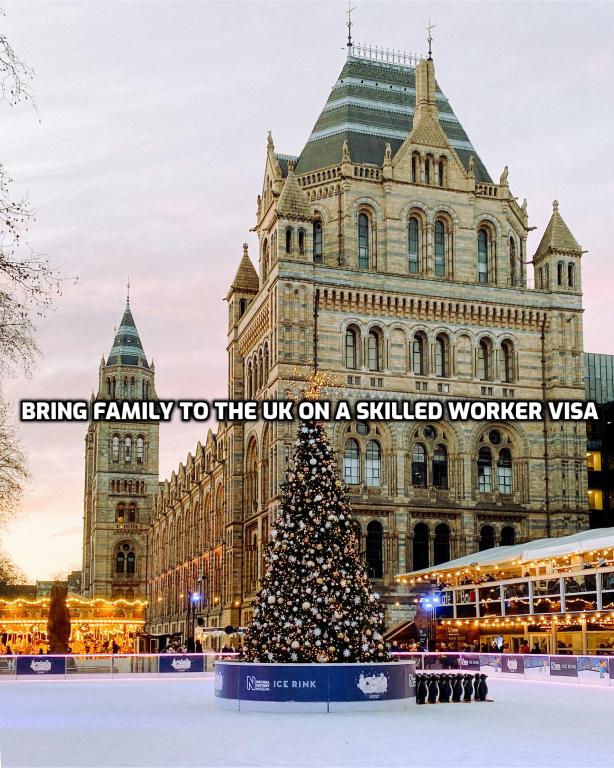How to Bring Your Family to Europe in 2025: Visa Options, Requirements, and Countries That Welcome Families
Europe remains one of the most attractive destinations for skilled workers, students, and expats relocating from around the world. If you’re planning to move to Europe and want your family to join you, this guide explains how you can bring your spouse, children, and even parents to some of the most family-friendly countries in the EU and beyond.
How to Bring Your Family to Europe in 2025
To bring family to Europe, you must be legally residing in the country. This could be under a work visa, study permit, permanent residency, or citizenship. Generally, immediate family members allowed include:
- Spouse or registered partner
- Children under 18
- Dependent adult children in some cases
- Parents (only in limited cases or under special visas)
Let’s break down the options by visa type and the most welcoming countries in Europe.
Family Reunification for Skilled Workers in Europe
If you’re moving to Europe on a skilled worker visa, you may be eligible to bring your family. Here’s how it works in the top destination countries:
Germany
Germany offers a straightforward family reunification process for Blue Card and skilled visa holders.
- Spouses can join immediately.
- No German language requirement for spouses if you’re on a Blue Card.
- Children under 18 can also accompany you.
- Family members are allowed to work in Germany.
Processing time: 2 to 3 months
Netherlands
The Netherlands supports family reunification under highly skilled migrant programs.
- You must earn at least the minimum income threshold (around €2,000+ per month depending on your family size).
- Partner and children can stay as long as your visa is valid.
- Partners can work once granted a residence permit.
Sweden
Sweden offers some of the easiest pathways for family members.
- Residence permits for family are usually granted for the same duration as yours.
- Healthcare, schooling, and other services are fully accessible to family members.
- Spouse or partner can work legally.
France
France allows family reunification after 18 months of legal residence. However, family members of skilled workers on talent passports can join immediately.
- You must show proof of accommodation and income.
- All family members can access public healthcare and schooling.
Family Visas for International Students
If you’re moving to Europe to study, some countries allow you to bring your family. Here’s how it works in major student destinations:
Germany
- Spouses and children can apply for a visa to join you.
- You must show financial means (around €1,200/month extra per family member).
- Health insurance for each member is mandatory.
- Spouses may be allowed to work part-time.
Finland
- Family can accompany international students.
- You must show a higher income threshold (€700–€900/month per family member).
- Spouses can work unlimited hours.
Ireland
Ireland does not allow non-EU students to bring dependents unless they’re enrolled in a PhD program or higher.
Poland
Poland allows family reunification after you’ve stayed for 2 years. However, this restriction does not apply to EU citizens.
Can You Bring Parents to Europe?
Most countries in Europe only allow parents to join under specific conditions:
- You must be a permanent resident or citizen.
- You must prove financial support and accommodation.
- Some countries like Spain, Italy, and Portugal allow dependent parents under family reunification laws.
Which European Countries Are Most Family-Friendly?
Portugal
Portugal has become a hotspot for expats and digital nomads:
- D7 visa holders can bring spouses and children.
- Fast-track permanent residency after 5 years.
- Access to public healthcare and education.
Spain
Spain offers generous reunification programs:
- Partners and children under 18 can join easily.
- You must have lived in Spain legally for 1 year.
- Income requirement applies.
Austria
Austria offers Red-White-Red Card holders an option to bring families:
- Spouses and children get the same residency period.
- Must show income and accommodation.
- German language requirement (A1) for spouses.
Step-by-Step Guide to Bring Your Family to Europe
Step 1: Secure Your Own Visa
Before applying for your family, make sure you have your own valid visa or permit—either for work, study, or residency.
Step 2: Prepare Documentation
Typical documents needed include:
- Marriage certificate (translated and legalized)
- Birth certificates of children
- Proof of income and accommodation
- Valid passports
- Health insurance for each family member
Step 3: Apply at the Embassy or Online
Applications must be made at the embassy of the country where you reside. Some countries now allow partial applications online.
Step 4: Wait for Processing
Most countries take 2 to 3 months to process family visas. Be prepared for interviews or extra documentation requests.
Costs to Expect
Family visa costs vary, but here are typical expenses:
- Visa application: €60–€150 per person
- Health insurance: €30–€90/month per person
- Translation and legalization of documents: €100–€300
- Rent and living expenses: €500–€1,000/month per family member
Can Family Members Work?
In most countries, once granted a family reunification visa, spouses can work freely. Children can attend school or daycare. Make sure the visa explicitly grants work rights.
Can My Family Get Residency or Citizenship?
Yes. After several years (typically 5), your family can apply for permanent residency. After that, they may qualify for citizenship, provided they meet language and integration requirements.
Bringing your family to Europe is not only possible but easier than ever in 2025. Whether you’re a student, worker, or resident, many countries allow your spouse and children to join you legally. Focus on countries with low restrictions, strong expat support, and clear visa pathways like Germany, Portugal, and Sweden.



